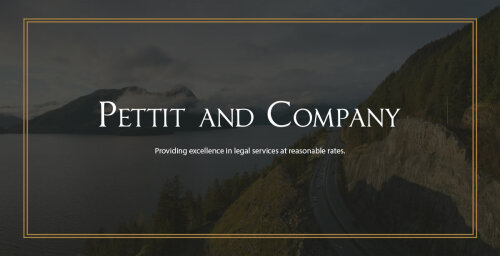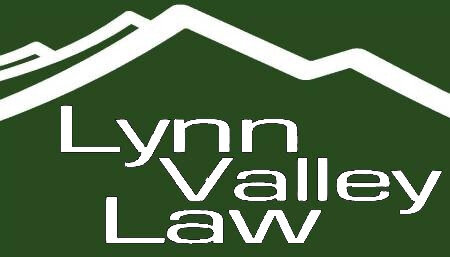Best Marine Insurance Lawyers in North Vancouver
Share your needs with us, get contacted by law firms.
Free. Takes 2 min.
List of the best lawyers in North Vancouver, Canada
About Marine Insurance Law in North Vancouver, Canada
Marine insurance is a specialized sector of the insurance industry that covers the loss or damage of ships, cargo, terminals, and any transport or cargo by which the property is transferred, acquired, or held between points of origin and final destination. Situated on the coast of British Columbia, North Vancouver is a significant hub for marine activities, making marine insurance particularly relevant in this region. Here, marine insurance law helps protect the interests of individuals and businesses engaging in marine activities, ensuring that they are financially safeguarded against specific perils associated with maritime operations.
Why You May Need a Lawyer
There are several scenarios in which seeking legal advice on marine insurance may be necessary:
- Disputes Over Claims: A lawyer can provide valuable assistance in cases where there is a dispute with the insurance company over coverage or compensation amounts.
- Policy Interpretation: Understanding the complex terms and conditions of marine insurance policies can be challenging; a lawyer can help interpret these policies.
- Drafting and Reviewing Contracts: Legal professionals can assist with the drafting and review of insurance contracts to ensure adequate coverage and compliance with local laws.
- Litigation Support: In instances where legal proceedings are needed due to non-payment or contract violation, a lawyer specialized in marine insurance law is essential.
- Compliance: Ensuring compliance with both national and international marine insurance regulations can require specialized legal oversight.
Local Laws Overview
Marine insurance in North Vancouver is governed by both federal and provincial laws. Key aspects include:
- Marine Liability Act: This federal statute outlines the responsibilities and liabilities connected to marine operations, including insurance requirements.
- The Insurance Act of British Columbia: This act addresses insurance operations within the province, offering a framework that impacts marine insurance contracts and claims.
- Canada Shipping Act: It regulates shipping activities and indirectly influences how marine insurance policies are structured.
These laws ensure that marine operations are conducted safely and that parties have legal recourse in case of disputes or accidents.
Frequently Asked Questions
1. What is covered under marine insurance?
Marine insurance typically covers loss or damage to ships, cargo, terminals, and property. It can also include liability coverage for third-party claims and environmental damages.
2. Is marine insurance mandatory in North Vancouver?
While not all types of marine insurance are mandatory, requirements vary based on the nature of the marine activities and type of vessel. It's advisable to consult a legal expert or insurance broker to understand specific obligations.
3. Can marine insurance cover environmental damage?
Yes, many marine insurance policies offer coverage for environmental liabilities resulting from activities like oil spills. It's important to review individual policies for specific coverage details.
4. How are marine insurance premiums determined?
Premiums are typically based on factors such as the type of coverage, the nature and value of the insured property, the area of operation, and the claims history of the insured party.
5. Can I get coverage for international waters?
Yes, many marine insurance policies can be extended to cover activities in international waters, but it requires specific inclusions and may affect the premium.
6. What should I do if my claim is denied?
If your claim is denied, reviewing the policy with a lawyer to understand the grounds for denial and potentially challenging the decision can be beneficial.
7. Are there different types of marine insurance?
Yes, there are various types, including cargo insurance, hull insurance, protection and indemnity insurance, and freight insurance, each covering different aspects of marine risk.
8. How long do marine insurance claims take to process?
The time for processing claims can vary significantly depending on the complexity of the claim, policy terms, and the efficiency of the insurer. Consulting a lawyer can expedite this process.
9. Can I modify an existing marine insurance policy?
Yes, policies can often be modified to better suit your needs, but changes must be negotiated with the insurer and might affect your premium and coverage.
10. What role do marine surveyors play in insurance?
Marine surveyors assess the condition and value of the vessel or cargo, providing crucial information for both underwriting processes and claim assessments.
Additional Resources
For further guidance and assistance, consider these resources:
- The Insurance Bureau of Canada (IBC): Offers information on various insurance policies and practices.
- Transport Canada: Provides regulatory guidance pertinent to marine operations in Canadian waters.
- Pacific Pilotage Authority: Can offer insights into the operation of vessels within the specific waters around North Vancouver.
Next Steps
If you require legal assistance with marine insurance, consider the following steps:
- Consult with a Lawyer: Seek legal advice from lawyers specializing in marine insurance to ensure your interests are adequately protected.
- Review your Policies: Regularly review your insurance policies with a professional to ensure they accurately reflect your current needs and circumstances.
- Document Everything: Keep meticulous records of all communications and documents related to your marine operations and insurance policies.
- Stay Informed: Keep abreast of any changes in local and federal laws affecting marine insurance to maximize compliance and coverage.
Taking proactive steps and seeking expert advice can significantly mitigate risks in marine operations and ensure comprehensive protection against unforeseen events.
Lawzana helps you find the best lawyers and law firms in North Vancouver through a curated and pre-screened list of qualified legal professionals. Our platform offers rankings and detailed profiles of attorneys and law firms, allowing you to compare based on practice areas, including Marine Insurance, experience, and client feedback.
Each profile includes a description of the firm's areas of practice, client reviews, team members and partners, year of establishment, spoken languages, office locations, contact information, social media presence, and any published articles or resources. Most firms on our platform speak English and are experienced in both local and international legal matters.
Get a quote from top-rated law firms in North Vancouver, Canada — quickly, securely, and without unnecessary hassle.
Disclaimer:
The information provided on this page is for general informational purposes only and does not constitute legal advice. While we strive to ensure the accuracy and relevance of the content, legal information may change over time, and interpretations of the law can vary. You should always consult with a qualified legal professional for advice specific to your situation.
We disclaim all liability for actions taken or not taken based on the content of this page. If you believe any information is incorrect or outdated, please contact us, and we will review and update it where appropriate.










